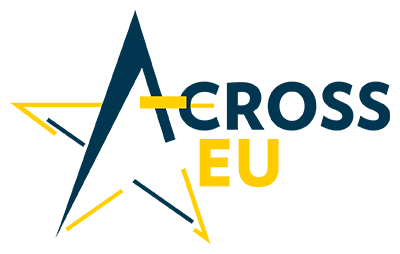The AcrossEU Consortium brings together nine universities from different European countries:
- Université de Caen Normandie, France
- Lapland University consortium (with University of Lapland and Lapland University of applied Sciences), Finland
- Univerzita Pardubice, Czech Republic
- Università degli Studi di Siena, Italy
- Ss. Cyril and Methodius University in Skopje, North Macedonia
- Universidad de Valladolid, Spain
- University of Bayreuth, Germany
- Université de Fribourg, Switzerland (associated partner)
As the world races forward, AcrossEU is deeply aware of the profound societal and environmental challenges ahead of us. The accelerating pace of technological innovation, epitomised by the advancements in artificial intelligence, intersects with pressing environmental issues like climate change. The situation becomes even more intricate due to the resurgence of geopolitical tensions in Europe and its surroundings, massive human displacements, and ongoing public health crises. Such a complex context, which mirrors the United Nations’ 17 Sustainable Development Goals, demands a holistic and interconnected understanding.
To address these challenges, our universities must play an active role. They need to be aware of the major trends transforming education, research and innovation and cultivate their capacity to foresee emerging needs of the European regions we represent.
Through a series of collaborative workshops and dialogue with our university communities, we acknowledge that our traditional approaches must be reassessed to embrace global complexity and foster collaborative innovation. This implies that we need to:
- Educate our students to become critical thinkers and agents of change in a rapidly evolving socio-economic environment and changing global educational standards requires the evolution of our curricula and teaching methods.
- Conduct research and find innovative solutions to emerging complex challenges, and ensure that our discoveries and breakthroughs create significant and lasting positive change, we need not only move beyond the boundaries of traditional academic fields within the rigid confines of our academic structures, but also engage with regional stakeholders which are pivotal in influencing them.
- Keep the pace and remain connected to global transitions, our universities, located in the peripheries of Europe, need to make an additional effort to surmount geographical, socio-economic and cultural barriers of talent attraction and inclusive internationalisation.
